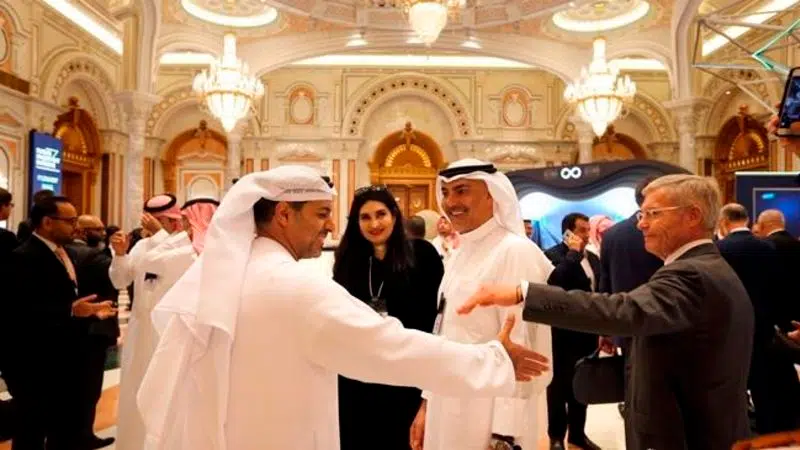
Report: Saudi Aramco shares to start trading in December
RIYADH, Saudi Arabia — A long-delayed initial public offering of the state-run oil giant Saudi Aramco will see its shares traded on Riyadh’s stock exchange in December, a Saudi-owned satellite news channel reported Tuesday as the kingdom’s showcase investment forum began.
The report by Dubai-based Al-Arabiya enlivened the start of the Future Investment Initiative, a summit of panels and talks convened by the kingdom’s powerful Crown Prince Mohammed bin Salman that aims to showcase Saudi Arabia’s potential for investors.
However, some major firms stayed away and attendees at times hid their nametags behind their suit jackets, a sign of the shadow still cast over the event by the assassination last year of Washington Post columnist Jamal Khashoggi at the Saudi Consulate in Istanbul. Authorities also barred foreign journalists, including those from The Associated Press, from photographing or filming panels and speeches themselves despite having been invited to the event. They did not give a reason for the ban.
Prince Mohammed hopes for a very-optimistic $2 trillion valuation for Aramco, which produces 10 million barrels of crude oil a day and provides some 10% of global demand. That would raise $100 billion he needs for his ambitious redevelopment plans for a Saudi Arabia hoping for new jobs, as unemployment stands at over 10%.

